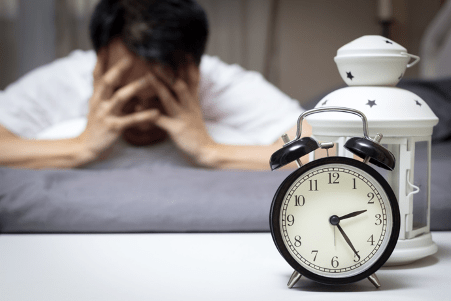Sleep and weight loss go hand and hand. Learn more about the science behind this relationship and tips on how to get more sleep so you can crush your goals.

When you’re trying to drop a few pounds it can be frustrating when you hit a plateau. What’s up with that? You’re eating well, working out, and overall staying active, so what’s the problem?
Well, how’s your sleep?
In today’s busy and bustling world, roughly 35% of adults don’t get enough sleep. Sleeplessness can have serious impacts on cognitive function, weight, and overall health.
You need to find time to rest! How are sleep and weight loss connected? Let’s talk about it.
Keep reading to learn all about how your lack of sleep might be impacting your ability to reach your body goals.
How Much Sleep Do I Really Need?
There is some dispute over how much sleep the average person really needs.
It used to be commonly known that adults need a full 8 hours of sleep to wake up refreshed and ready to go about their days. In reality, it’s not so simple.
There are a lot of variabilities that impact the amount of sleep that you might actually need. The first is age.
Babies and children need more sleep than adults. Their bodies are growing and changing and the resting time gives them more room to do that. When children don’t sleep they don’t develop as effectively.
Teenagers tend to require slightly more sleep than adults, benefiting from 8 to 10 hours.
Adults average out at between 7 and 9 hours. There are outliers. For young adults, 6 hours may be enough or 11 hours may be preferable, depending on the individual. For older adults (65+) 5 hours might be enough.
If you feel like you fall outside of this average naturally (meaning that you sleep less but still feel well-rested) you may just have a differing circadian rhythm. Some people sleep less but more frequently (taking small naps throughout the day). Others need more sleep.
Overall, it’s best to aim in that 7-9 range and go from there.
Is All Sleep the Same?
Just because you’re sleeping doesn’t mean you’re actually getting the benefits of sleep every night.
You need to get into a deep sleep, meaning that you should go through all sleep cycles. These phases of sleep rotate throughout the night, averaging at about 90 minutes per cycle. Many people report feeling most rested when they’ve finished their last cycle of sleep upon awakening.
If you’re not getting into the deep sleep phase, you may not actually be getting the rest that you need for your mind and body.
How Does Sleeping for Weight Loss Work?
Sleep is restorative. Whether you’re spending your awake time working out for weight loss or just getting through your daily routine, your body needs to recover. It also balances out certain functions in your body that control your appetite, metabolism, and more.
Stress
When you don’t get enough sleep, your body gets stressed. You might not feel that stress (though you likely feel the associated discomfort. You’re groggy, cranky, and all-around uncomfortable) but it’s causing your body to produce cortisol.
Cortisol is a stress hormone that tells your body that it should be hanging onto fat to store in its reserves.
There is evidence to suggest that inadequate sleep can lead to obesity when it’s frequent.
Appetite
Sleep has a direct impact on our hunger hormones. When you get a good night of sleep, it’s common to wake up feeling satiated despite having fasted for hours. This is because those hormones are regulated by sleep.
When you don’t sleep enough, you may wake up feeling peckish. The hormones are imbalanced and you end up eating more food earlier.
Not getting enough sleep may also cause you to make poor food choices. The body uses carbs for energy. There’s nothing wrong with carbs, but consuming too much may contribute to weight gain.
When the body needs that energy it may go directly for simple carbs.
Physical Activity
When you’re overtired, you’re not likely to be as physical as you would be after a long night of sleep.
You can’t possibly work to your full potential when you haven’t rested properly. A rested body is able to exert more effort and perform better overall. Reaction times are quicker, coordination is better, and the body feels stronger.
How Can I Get More Sleep?
So we know that a lack of sleep is bad for the belly, but how can you fix that?
You have a few options.
You can decrease the amount of blue light that you expose yourself to before bedtime. Blue light comes from electronics. For most people in 2020, that means your smartphone.
Putting the phone aside an hour before bed can help get your brain into sleep mode. The only exception to this is if you’re using it for white noise or sleep meditation (which can also help)
You can try taking supplements that help to encourage sleep. Melatonin is popular for this, as is Catuaba bark for the more holistic insomniacs (see this page for more information).
If you’re the kind of person that likes an afternoon coffee to get through the end of the workday, try ditching it. Some people react well to caffeine later in the day and it doesn’t disrupt their sleep schedules. Others grow more sensitive to it over time and find that it keeps them awake hours later.
This might seem counterintuitive, but if you have trouble sleeping, don’t just lay in bed tossing and turning or staring at the wall. Try to do something relaxing like reading a book until your eyes begin to feel heavy.
Sleep and Weight Loss: Takeaways
Getting enough sleep might be one of the weight loss solutions that you’ve been looking for. You should still eat a healthy diet and remain active, but getting the sleep that your body needs can help you beat that plateau.
Sleep and weight loss have a strong connection. Don’t overdo your diet and exercise efforts just to have them thwarted by your body’s need for restorative sleep.
For more posts like this, check out the rest of our site.



